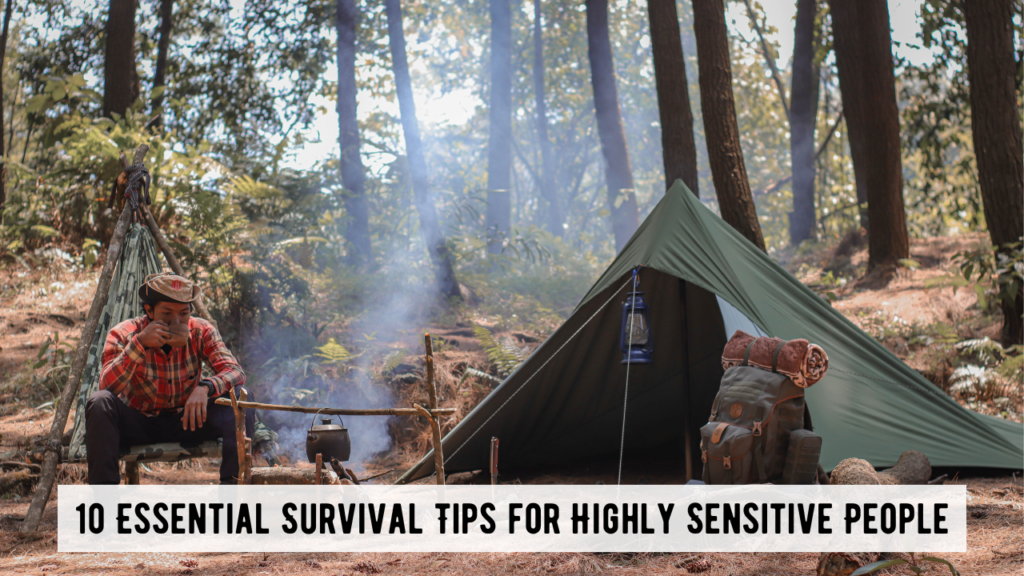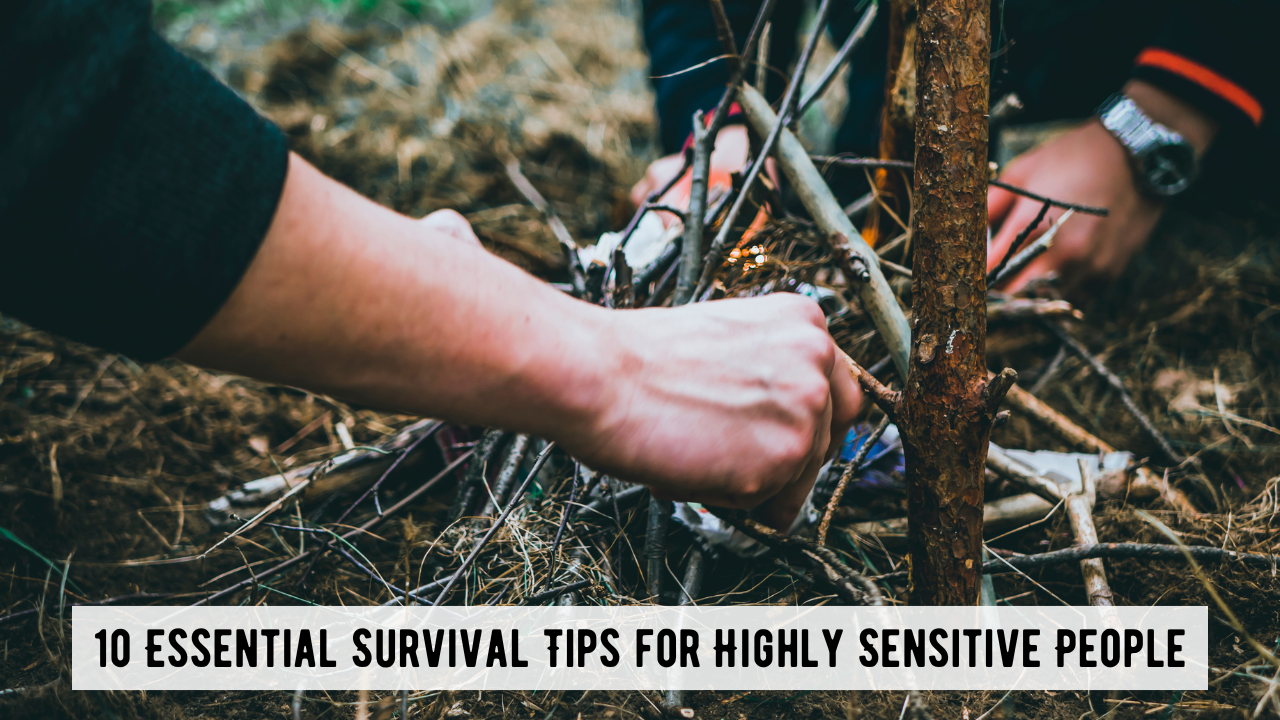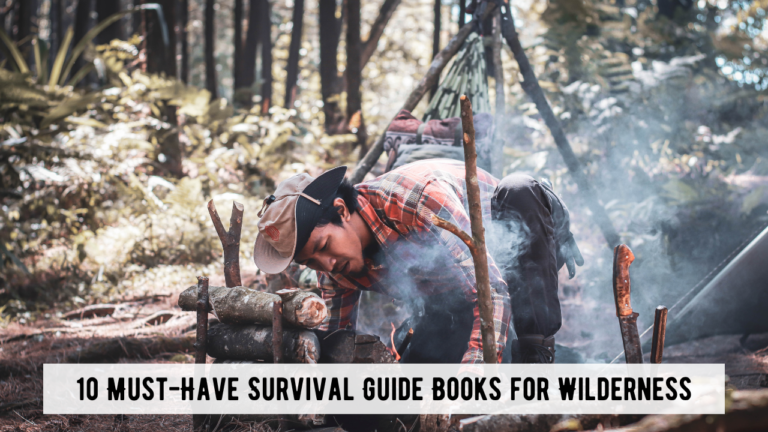Discover 10 essential survival tips for Highly Sensitive People to thrive in an overwhelming world. WikiSurvivalGuide.com offers practical strategies to manage sensory overload, set boundaries, and embrace your sensitivity as a strength, inspired by experts like Elaine Aron.
Who Are Highly Sensitive People?
Highly Sensitive Persons (HSPs), comprising 15–20% of the population, process stimuli deeply, per psychologist Elaine Aron. They’re overwhelmed by noise, crowds, and emotions, often feeling “strange” without a name for their trait. Sensitivity, linked to genetic factors, can enhance empathy but requires coping strategies. Check More Here:- 10 Must-Know Best Tips from the US Military Survival Guide for Any Crisis in 2025
Why HSPs Need Survival Tips
HSPs’ nervous systems amplify sensory input, leading to overstimulation, irritability, or anxiety without management, per a 2023 study. Effective coping can boost emotional intelligence and self-esteem, while poor strategies risk mental health challenges like depression. Tailored tips help HSPs thrive.
The Science of High Sensitivity
High sensitivity involves a hyperactive sensory processing system, with a 2023 study suggesting genetic roots. HSPs notice subtleties others miss, from tone shifts to faint smells, but this depth can exhaust them. Understanding this trait empowers HSPs to create supportive environments.
Benefits of These Tips
These strategies—grounded in Aron’s research and Zeff’s coping mechanisms—reduce overstimulation, improve focus, and foster calm. They address HSP challenges like noise sensitivity and emotional overload, transforming raw sensitivity into keen perceptiveness for better relationships and well-being.
How to Start
Identify if you’re an HSP using Aron’s self-test questions (e.g., “Are you easily overwhelmed by strong sensory input?”). Then, implement these tips gradually, starting with low-effort changes like reducing caffeine. Track progress with a journal to refine what works best.
Survival Tips Overview Table
| Tip | Key Benefit | Time to Implement | Tools Needed |
|---|---|---|---|
| Prioritize Sleep | Soothes senses, reduces irritability | Daily (7–8 hrs) | Dark room, earplugs |
| Eat Regularly | Stabilizes mood, focus | 3–5 times daily | Healthy snacks |
| Use Noise Protection | Blocks overwhelming sounds | As needed | Earplugs, headphones |
| Set Boundaries | Protects energy, reduces stress | Ongoing | Communication skills |
| Create a Quiet Space | Provides decompression | Daily | Cozy room setup |
| Limit Caffeine | Calms nervous system | Immediate | Herbal teas |
| Avoid Crowds | Minimizes sensory overload | Ongoing | Schedule adjustments |
| Practice Mindfulness | Enhances emotional regulation | 10–20 min daily | Meditation app, journal |
| Embrace Routine | Reduces decision fatigue | Daily | Planner, checklists |
| Use Aromatherapy | Promotes calm, reduces stress | As needed | Essential oils, diffuser |
10 Essential Survival Tips for Highly Sensitive People

1. Prioritize 7–8 Hours of Sleep
Process: Go to bed by 10–11 PM to ensure 7–8 hours of sleep. Use blackout curtains, a white noise machine, or earplugs to block stimuli. Avoid screens 1 hour before bed.
Benefits: Sleep soothes HSPs’ ramped-up senses, reducing irritability and improving focus, per Psychology Today. Lack of sleep makes sensitivity unbearable.
How to Start: Set a consistent bedtime; wind down with a book or calming music. Takes 1–2 weeks to adjust.
Tip: Keep your bedroom cool (60–67°F) for optimal rest.
2. Eat Healthy Foods Regularly
Process: Eat 3 balanced meals and 2 snacks daily, including protein, complex carbs, and healthy fats (e.g., avocado, nuts). Prep snacks like apple slices with almond butter. Avoid skipping meals.
Benefits: Steady blood sugar prevents mood swings and concentration dips, critical for HSPs, per Aron’s research.
How to Start: Plan meals weekly; keep portable snacks handy. Takes 3–5 days to stabilize energy.
Tip: Carry a small snack (e.g., trail mix) for unexpected delays.
3. Use Noise-Protecting Gear
Process: Wear earplugs or noise-canceling headphones (e.g., Peltor, Bose) in loud environments like cafes or public transport. Keep a pair in your bag.
Benefits: Blocks uncontrollable noise, a major HSP trigger, creating personal peace, as noted by a Psychology Today blogger.
How to Start: Test earplugs ($10–$20) or headphones ($100–$300) for comfort. Use daily as needed.
Tip: Practice wearing them briefly at home to adjust.
4. Set Clear Boundaries
Process: Communicate needs kindly but firmly (e.g., “I need quiet time after work”). Say “no” to draining events without guilt. Practice assertive phrases weekly.
Benefits: Protects energy and reduces stress, allowing HSPs to recharge, per Best Self Media.
How to Start: Identify 1–2 draining situations; rehearse responses. Takes 1–2 weeks to feel natural.
Tip: Use “I” statements (e.g., “I feel overwhelmed”) to avoid conflict.
5. Create a Quiet Retreat Space
Process: Designate a room or corner with soft lighting, cozy blankets, and minimal decor. Add noise-blocking curtains or a white noise machine. Use daily for 15–30 min.
Benefits: Provides a decompression sanctuary, reducing overstimulation, per ApartmentGuide.
How to Start: Declutter a small space; add calming items (e.g., candles). Takes 1–2 days to set up.
Tip: Keep this space tech-free to maximize calm.
6. Limit Caffeine Intake
Process: Replace coffee or soda with herbal teas (e.g., chamomile) or water. Gradually reduce caffeine over 1–2 weeks to avoid withdrawal headaches.
Benefits: Calms the nervous system, reducing jitteriness HSPs are prone to, per Psychology Today.
How to Start: Cut intake by half daily (e.g., 1 cup instead of 2). Takes 1–2 weeks for effects.
Tip: Avoid dark chocolate, which contains trace caffeine.
7. Avoid Crowded Environments
Process: Schedule errands (e.g., grocery shopping) for off-peak times like weekday mornings or late evenings. Attend events like movies on weeknights. Plan weekly.
Benefits: Minimizes noise and sensory overload, preserving energy, per Psychology Today.
How to Start: Map out a weekly schedule with quiet times. Takes 1 week to adjust.
Tip: Scout less crowded stores with softer lighting for errands.
8. Practice Mindfulness Daily
Process: Meditate for 10–20 min daily using apps like Calm or guided breathing exercises. Journal emotions to process overwhelm. Practice in a quiet space.
Benefits: Enhances emotional regulation and reduces anxiety, per a 2018 study, helping HSPs manage sensitivity.
How to Start: Begin with 5-min sessions; increase gradually. Takes 2–4 weeks for benefits.
Tip: Pair with evening wind-down for better sleep.
9. Embrace Consistent Routines
Process: Create morning and evening routines (e.g., wake at 7 AM, read for 15 min, bed by 10 PM). Use checklists for daily tasks like brushing teeth or packing a bag.
Benefits: Reduces decision fatigue and adds predictability, vital for HSPs, per Traveling Light Counseling.
How to Start: Write a daily schedule; follow for 1 week. Takes 1–2 weeks to feel natural.
Tip: Keep a planner to track routines and adjustments.
10. Use Aromatherapy for Calm
Process: Diffuse lavender or eucalyptus essential oils in your quiet space or add to a bath. Apply diluted oils to wrists during stressful moments. Use 2–3 times weekly.
Benefits: Soothes stress and sensory overload, enhancing relaxation, per ApartmentGuide.
How to Start: Buy a $20 diffuser and lavender oil; test for skin sensitivity. Takes 1–2 days to incorporate.
Tip: Add oils to a shower floor for a quick calming effect.
Sensory Triggers and Solutions Table
| Trigger | Common Reaction | Solution | Frequency of Use |
|---|---|---|---|
| Loud Noises | Anxiety, irritability | Earplugs, headphones | Daily, as needed |
| Bright Lights | Headaches, discomfort | Low lighting, sunglasses | Daily |
| Crowds | Overwhelm, fatigue | Off-peak scheduling | Weekly |
| Strong Smells | Nausea, distraction | Aromatherapy, ventilation | As needed |
| Emotional Stress | Mood swings, withdrawal | Mindfulness, boundaries | Daily |
Tips for Implementing Strategies
- Start Small: Focus on 1–2 tips (e.g., sleep, earplugs) for 2 weeks before adding more.
- Track Progress: Journal sensory triggers and tip effectiveness to refine your approach.
- Seek Support: Consult a therapist if sensitivity disrupts daily life, per Karolina Fotyga.
- Connect with HSPs: Join online communities (e.g., Reddit’s r/hsp) for shared tips.
- Be Patient: Building coping skills takes 4–8 weeks; celebrate small wins.
Conclusion
These 10 essential survival tips for Highly Sensitive People empower HSPs to manage sensory overload and embrace their sensitivity as a gift. From quiet retreats to mindfulness, these strategies foster calm and resilience.
Frequently Asked Questions (FAQs)
1. How do I know if I’m a Highly Sensitive Person?
Take Elaine Aron’s self-test, assessing traits like sensitivity to noise, crowds, or emotions. About 15–20% of people are HSPs, per her research.
2. Can these tips help with anxiety?
Yes, tips like mindfulness and sleep reduce overstimulation, a key anxiety trigger for HSPs, per a 2023 study.
3. Are HSPs the same as empaths?
Not always. HSPs process stimuli deeply; empaths absorb others’ emotions. Many HSPs are empaths, but not all, per Best Self Media.
4. How long does it take to see results?
Most tips show benefits in 1–4 weeks with consistent practice. Sleep and caffeine changes work fastest, per user feedback.
5. What if my sensitivity disrupts daily life?
Consult a therapist to develop advanced coping skills, especially if triggers cause anger or withdrawal, per Karolina Fotyga.




Leave a Comment